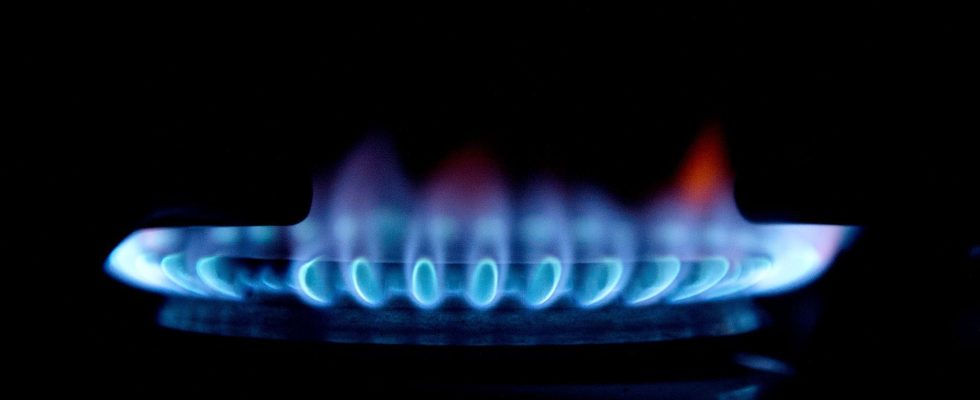The energetic upheaval is confirmed. French gas consumption fell in 2023 to its lowest level since the 1990s, due to a milder climate, efforts at sobriety and changes in behavior linked to the energy transition, according to the annual report of the gas transmission network manager GRTgaz published Tuesday.
“French gas consumption falls by 11.4% in 2023 and falls below 400 TWh, reflecting new behaviors in terms of sobriety and uses,” indicates the manager in a press release. It even falls by 20% in two years (between 2021 and 2023), a drop described as “historic” by GRTgaz.
A stabilization of gas prices in Europe
The trend observed since 2021 and the start of the rise in gas prices, driven by the post-pandemic economic recovery, was confirmed in 2023, “despite a stabilization of gas prices in Europe and a return to their pre-war levels in Ukraine”, explains GRTgaz.
The average price of gas on the markets according to the Dutch TTF index – considered the European benchmark for gas – currently stands at 22 euros per MWh, half as much as in 2023 (43 euros) and 5.5 times and a half less than during the year 2022 (121 euros) marked by an unprecedented surge after the war in Ukraine and the drastic reduction in supplies from Moscow to Europe.
In detail, consumption of public distribution (households, tertiary, small industry) fell by 6.5% in 2023 compared to 2022, to 253 TWh, in climate-corrected data. A decline similar to that observed between 2021 and 2022 (-6.2%).
“This means that, even if we have mild winters, consumers have changed their behavior (…) and then there is also probably an energy efficiency effect”, commented to AFP Sandrine Meunier, director General Director of GRTgaz.
A decline also among industrialists
Consumption by large energy-intensive industrial customers (chemistry, glass, etc.) fell by 7.4% to 103.8 TWh, after a drop of 11.5% in 2022. Since 2021, the drop has reached -18.2%, reflecting the fact that certain manufacturers, with the rise in prices, have “stopped industrial processes” or converted to “other types of energy” such as electricity, according to Ms. Meunier.
In 2022, the drop in national gas consumption was less significant (-9.3%), but the year was marked by a record use of gas to power thermal power plants in order to compensate for the unavailability of numerous nuclear reactors affected by corrosion problems.
In 2023, thanks to the rise of nuclear power, gas consumption to produce electricity returned to the 2021 level at 36 TWh, down 40% compared to 2022.
